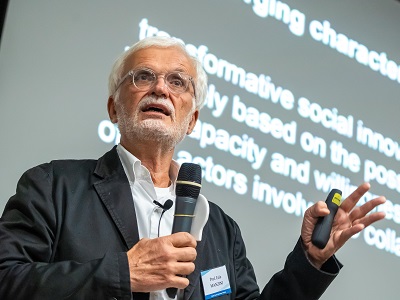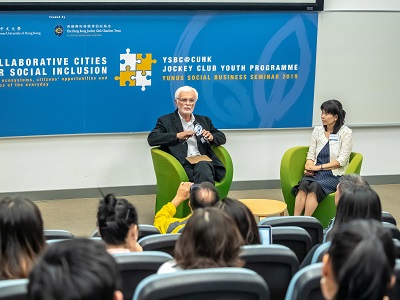



  




 



 
|
| 13. 10. 2019 ISSUE 22 | |||
|
|
Yunus Social Business Seminar 2019 |
|||||
|
The Yunus Social Business Seminar 2019, titled "Collaborative Cities for Social Inclusion - Urban Ecosystems, Citizens' Opportunities and Politics of the Everyday", was held on the 26th of last month. Professor Ezio Manzini, Founder of the Design for Social Innovation & Sustainability Network was invited to be the speaker of this seminar. Professor Manzini is a world's leading expert on sustainable design with over two decades of relevant experience. In the seminar, Professor Manzini elaborated how "collaborative well-being" could be fostered through co-creation of common goods. He added that "collaborative well-being" goes counter to the dominant trends of individualism, competition and consumerism. On the other hand, Professor Manzini cited the conception of poverty of Amartya Sen (a Nobel laureate in economics) to corroborate his own explanation of poverty being the deprivation of capability to realise one's full potential as a human being. As per the above understanding, Professor Manzini proposed the idea of "community hub" to facilitate the development of "collaborative well-being" and further serve as a tool to break the poverty trap. A "community hub" is an extension of home, a place where everyday life services are interwoven, and a platform that the poor could devise and practise social innovation. In other words, the "community hub" can play the role of an "enabler". At the end of the seminar, Professor Manzini reiterated the importance of social innovative design, which is not only about locating people's needs and solutions, but also understanding what people are capable to do, what they are willing to do, and what the available resources are. The aforesaid seminar is a part of the "Jockey Club Youth Programme" administered by the Yunus Social Business Centre@CUHK, which is an affiliate of this Centre. For more information, please visit here. |
|
||||
|
|
|||||
|
Past Issue
| |
|
|
|
|
|

